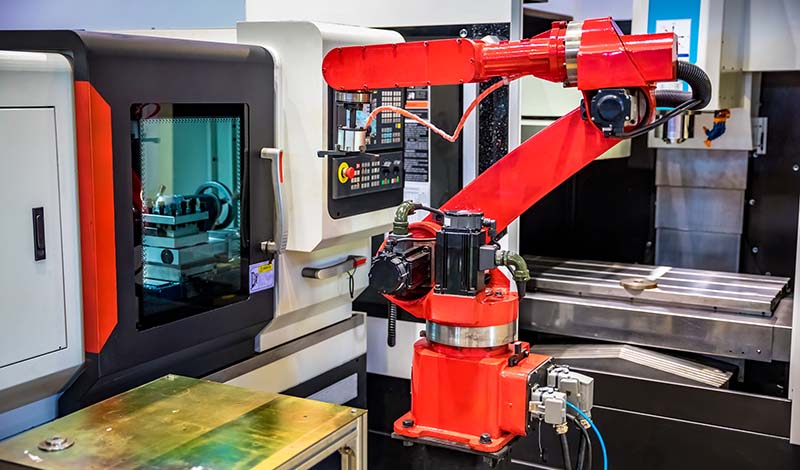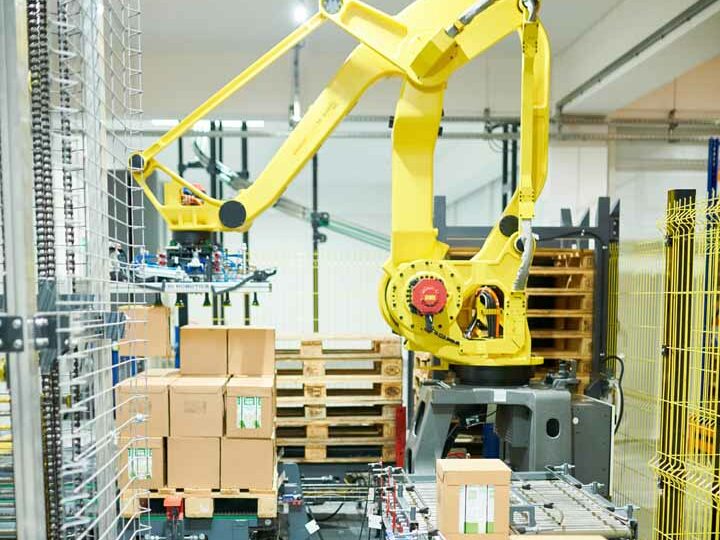
Robotic Process Automation (RPA) is an exciting new technology that’s becoming essential for businesses. Particularly those wanting to improve efficiency and streamline their processes. It uses technologies like Artificial Intelligence (AI) and Machine Learning (ML) to easily automate entire production lines.
The future of robotic process automation relies on its ability to imitate human actions. It must also manage large amounts of data to complete tasks. This allows an “automation anywhere” approach to efficiency across different industries and departments.
Robotic Process Automation (RPA) is software designed to complete tasks by mimicking human actions in digital processes. This means that the RPA or software robots read digital processes and can be programmed to perform those tasks. These bots are best suited for repetitive processes that can be time-consuming or prone to human error.
RPA is intelligent automation that can duplicate and carry out high-volume, repeatable tasks usually done by humans. RPA bots work by reading data, making decisions, and executing processes on behalf of users. This helps businesses automate tasks quickly and accurately, freeing up employees to focus on more valuable work.
In addition, RPA bots are user-friendly and can be set up without extensive training. As a result, businesses can achieve quick returns on investment and start seeing productivity benefits almost immediately. Finally, RPA can improve customer experience by handling tasks like data entry and reporting.
By automating these time-consuming and error-prone tasks, businesses can provide better service to their customers. RPA is being adopted across many industries, including financial services, manufacturing, and healthcare. In conclusion, RPA offers a wide range of benefits for businesses of all sizes. Companies that implement RPA can enjoy increased productivity, accuracy, and customer satisfaction.
Below, we will explore more details about the benefits of RPA for businesses.
1
RPA technology accelerates productivity by automating rule-based tasks that often take humans hours to complete. For example, tasks like sorting reports or creating division-specific reporting are completed quickly by bots. This frees up employees to focus on more complex tasks and boosting productivity.
2
Unlike human workers, robots can operate continuously, day and night, without fatigue. This uninterrupted operation increases efficiency, minimizes slowdowns, and reduces the need for human intervention, particularly in repetitive tasks where fatigue can lead to errors.
3
PEC provides RPA tools, like Blue Prism, to help businesses achieve digital transformation. By integrating RPA into your existing setup, scaling operations becomes effortless. This is true whether you’re automating a portion of your business or the entire operation. Even basic functions, such as drag-and-drop tasks, can be easily incorporated, allowing for seamless growth.
4
With RPA handling repetitive and precision tasks, businesses can reduce waste and make better use of human resources. By automating data processing and unstructured data management, RPA allows for smarter resource allocation and improved bottom-line results.
5
RPA technology enables better communication between systems, helping teams access data faster and streamlining data transfers across departments. This improves response times and accuracy, ensuring that clients receive reliable information and efficient service.
6
RPA offers safety benefits by managing tasks that may pose risks to humans. Automated processes and self-diagnostic RPA tools quickly identify potential issues. This reduces downtime, as RPA can alert maintenance teams before small issues lead to bigger disruptions.
7
With RPA, businesses can create a digital workforce that handles many functions remotely. It allows workers to oversee operations safely, without needing to be on-site. RPA also supports round-the-clock production and can automate data extraction, processing, and reporting, simplifying auditing and analytics.
Incorporating RPA tools allows for a smooth digital transformation. It replaces repetitive tasks with efficient, automated solutions. Solutions that improve productivity and resource management while reducing the need for human intervention in hazardous or tedious areas.

The future of RPA aims to be an extension of current business operations, improving efficiency, safety, and productivity. RPA doesn’t work alone. It’s often combined with automation tools and can also integrate other aspects of machinery and robotics used in businesses.
This seamless integration approach to business automation means the easy combination of artificial intelligence, machine learning, and robotics automation to create that well-oiled machine.
But RPA takes this one step further and includes natural language processing (NLP) techniques to understand unstructured data. Unstructured data can be a major hurdle for businesses looking to automate their processes, as previously, RPA couldn’t read certain data types. This includes files like scans, audio and video files, and even images.
This combination of AI, ML, and NLP allows RPA to scale automation into areas we’ve never explored before. Our team at PEC is keeping a close eye on these developments as they unfold. These advances in automated robotics can make significant strides in the effectiveness of business automation protocols. That continuous stream of easy data management is what businesses strive for to focus their human resources on tasks that are safer and less mundane.
While there are countless benefits to implementing RPA in your business, it can only improve your production flow if the installation, monitoring, and maintenance are done by experienced professionals. The dangers of trusting the installation to anyone but a professional can result in:
1
When a system is automated, especially robotic components, it’s important to consider the human element. Where people work alongside these robots, it’s crucial that the safety standards are high and focused on a safety-first approach.
2
RPA relies on software and tools for maximum efficiency. When these aren’t aligned or programmed to suit the business’s needs, it can result in damaged goods. Wasted resources and misalignment of production goals that can cost the business money are also risks.
3
It’s also possible to propose a solution that’s unnecessary for the business’s needs and can cost unnecessary expenses. RPA implementation can be costly, but the right solution easily covers those costs with increased productivity and efficiency. The opposite can happen with incorrect implementation.
4
The benefits of RPA strongly rely on the quality of the installation. This means that quality goods are used in the process. It also means that the highest level of care is taken when deciding on software and tools.
While you might spend less on cheaper equipment, it may not ensure longevity and accuracy. Good quality materials, software, and tools are also important for safety reasons.
Figuring out where to start with RPA can be daunting. The right team of professionals can help guide you through the process, regardless of the size of your business. If you have any processes that require robotic automation, there’s a potential process solution.
RPA development and implementation is an exciting pursuit for PEC. Our team of experts provides a comprehensive suite of RPA solutions to meet your goals. Our services include consulting, assessment, implementation, and support.
With RPA platforms and tools, even citizen developers can help automate tasks within your business. Schedule a consultation to learn more about our RPA solutions.
By choosing PEC, you can harness the power of RPA to transform your business. Let us help you navigate the future of robotic process automation. Achieve seamless integration of this amazing technology into your operations with PEC.